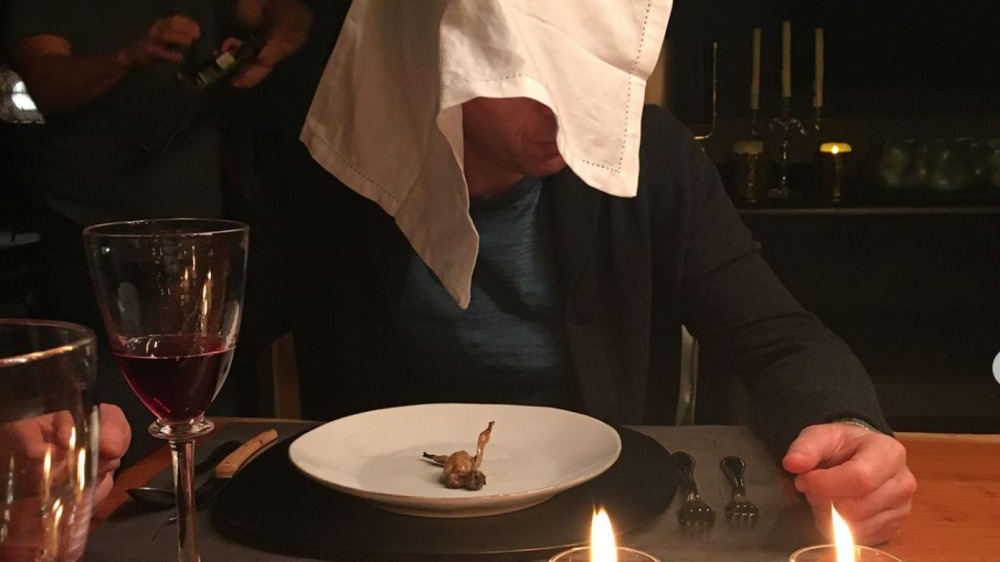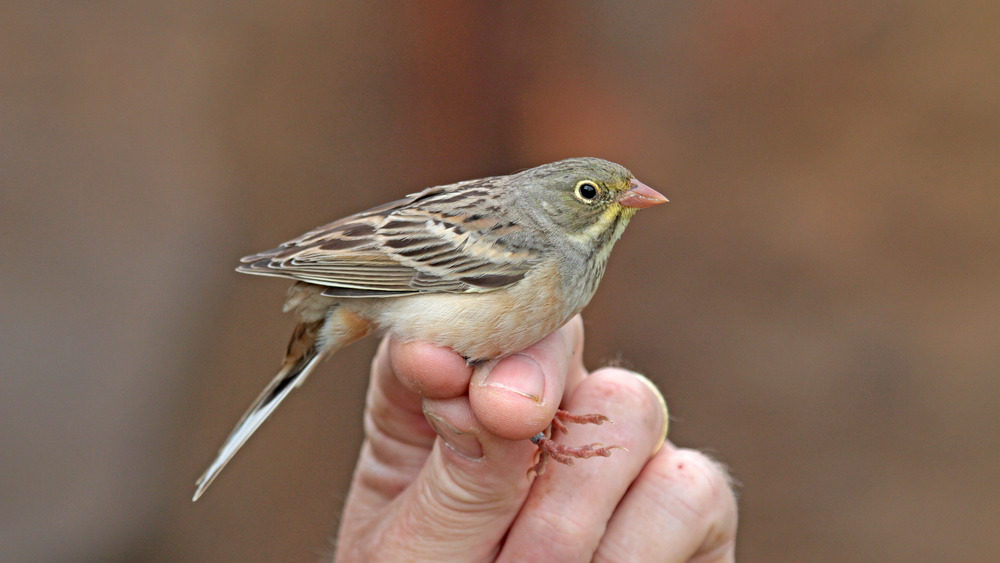Why This Famous French Dish Is Eaten With A Towel Over Your Head
You might recall a scene from the HBO Series, Billions, in which Bobby Axelrod, and his COO Wags, dine on what might appear to be deep-fried whole rubber ducky, but not before making certain their eyes are covered by a white dinner napkin? What the men were eating beneath their napkins was a rare, French delicacy known as "ortolan bunting." An ortolan bunting, or just "ortolan" for short, is a tiny songbird (tiny like a rubber ducky) native to Europe, according to Smithsonian Magazine. The dish, which the publication explains, involves a whole-Armagnac-preserved ortolan, roasted to golden-skinned perfection, is a rare French delicacy that has been illegal in the EU since 1979 because the ortolan bird itself is nearing extinction.
Each ortolan is meant to be eaten in one bite — one that is, at once, savory, juicy, and tender. It is also disarmingly crunchy, as the bite includes the bird's tiny bones and beak as part of the deal. That one bite is, in fact, so decadent, so Marie Antoinette-level frivolous, that good etiquette demands one hide one's face in shame, according to the Telegraph's Harry Wallop, via Smithsonian. But is that really the reason? And if so, why would eating something so delicious ever be so shameful one would be compelled to hide one's face under a towel? Read on for the true tale of the highly-coveted delicacy.
The tragic true tale of the ortolan bunting
There may be reasons other than the aforementioned "shame" theory as to why the famous French dish, ortolan bunting, is eaten with a towel over one's head (via Smithsonian Magazine). It may also be that covering one's face concentrates the dish's complex aromas. Or perhaps it is meant to circumvent the awkwardness of spitting out little bits of bones and beak. Liz Alderman, writing for The New York Times, suggested that covering one's face might be a way of enjoying due privacy while indulging in a dish so sensual.
Those who subscribe to the "shame" theory cite the rather dark manner in which the ortolan is caught and killed. According to The New York Times, the tiny songbirds are caught during their trip South for the winter. They're then kept alive for 21 days during which they're fattened up to nearly triple their original size. This is accomplished by securing the birds, which are nocturnal eaters, in total darkness, thus confusing their body clocks so as to induce them into binging pretty much non-stop. Death comes via drowning in Armagnac brandy. The birds are then plucked and roasted quickly over an open fire.
Whether the journey of the ortolan from snowbird to roast-bird is any more cruel than that of the baby calf to the scallopine milanese, remains moot at the moment, or at least until French chefs have their way and reverse the EU's ban (via The New York Times).

